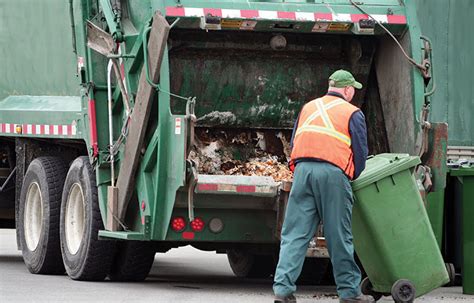As we go about our daily lives, it's easy to overlook the people who work behind the scenes to keep our communities clean and hygienic. One such group of unsung heroes is the trash collectors, also known as waste collectors or sanitation workers. These individuals play a vital role in maintaining public health and safety, and their work is often physically demanding and labor-intensive.
Despite their importance, many people are unsure about the salary and benefits that trash collectors receive. In this article, we'll delve into the average salary of trash collectors, as well as the factors that influence their pay and the benefits that come with the job.
What is the Average Salary of a Trash Collector?
According to data from the Bureau of Labor Statistics (BLS), the median annual salary for refuse and recyclable material collectors in the United States was $44,530 in May 2020. However, salaries can vary significantly depending on factors such as location, employer, level of experience, and specific job duties.
Here are some average salary ranges for trash collectors in the United States:
- Entry-level trash collectors: $25,000 - $35,000 per year
- Experienced trash collectors: $35,000 - $50,000 per year
- Senior trash collectors or crew leaders: $50,000 - $70,000 per year
It's worth noting that these figures are based on national averages and can vary significantly depending on the specific location. For example, trash collectors working in urban areas tend to earn higher salaries than those working in rural areas.
Factors that Influence Trash Collector Salaries
Several factors can influence the salary of a trash collector, including:
- Location: Salaries can vary significantly depending on the location. For example, trash collectors working in major cities like New York or Los Angeles tend to earn higher salaries than those working in smaller towns or rural areas.
- Employer: Trash collectors working for private waste management companies may earn different salaries than those working for government agencies or municipalities.
- Level of experience: More experienced trash collectors tend to earn higher salaries than those who are new to the job.
- Job duties: Trash collectors who perform specialized tasks, such as hazardous waste collection or recycling, may earn higher salaries than those who perform general trash collection duties.
- Union membership: In some areas, trash collectors may be members of labor unions, which can negotiate higher salaries and benefits on their behalf.
Benefits of Being a Trash Collector
While the salary for trash collectors may not be the highest, the job comes with several benefits, including:
- Job security: Trash collection is an essential service, and trash collectors are in high demand.
- Opportunities for advancement: Experienced trash collectors can move into supervisory or management roles, or take on specialized tasks that require additional training or certification.
- Benefits packages: Many employers offer comprehensive benefits packages, including health insurance, retirement plans, and paid time off.
- Sense of satisfaction: Trash collectors play a critical role in maintaining public health and safety, and can take pride in knowing that their work is essential to the community.
Gallery of Trash Collector Images






FAQs
What is the average salary of a trash collector in the United States?
+The median annual salary for refuse and recyclable material collectors in the United States was $44,530 in May 2020, according to the Bureau of Labor Statistics.
What factors influence the salary of a trash collector?
+Several factors can influence the salary of a trash collector, including location, employer, level of experience, job duties, and union membership.
What benefits do trash collectors receive?
+Trash collectors typically receive comprehensive benefits packages, including health insurance, retirement plans, and paid time off. They also have job security and opportunities for advancement.
In conclusion, while the salary for trash collectors may not be the highest, the job comes with several benefits and opportunities for advancement. As essential workers, trash collectors play a critical role in maintaining public health and safety, and their work is essential to the community.
